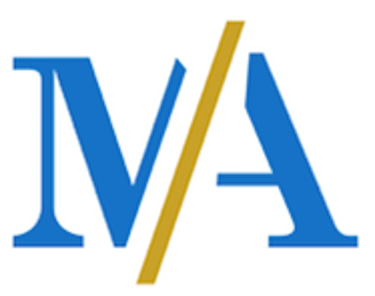Fraud Alert
Fraudsters can set up website domain names which are confusingly similar to real domains, in order to try to fool clients into thinking they are corresponding with a genuine email address.
ARTICLE FOUR takes the security of its clients’ data seriously and our systems are set up to hold your data securely in line with physical, technical and administrative security measures. We adopt industry best practices wherever possible, regularly review our security procedures, and also provide mandatory and regular staff training in order to protect against phishing or similar attacks which could lead to such data leaks.
However, the transmission of information via the internet is not completely secure. Although we will take reasonable measures to protect your personal information, we cannot guarantee the security of your information transmitted and any transmission is at your own risk. We therefore recommend the following precautions when corresponding with ARTICLE FOUR, and in particular when being asked for confidential or personal information, or when dealing with any payment requests:
1. Always verify the sending address and make sure it says article-four.com in the address and the headers of the email
2. Ensure that any matter number or reference quoted corresponds with what is expected or has been known/verified in the past.
3. Check the full invoice calculation to ensure accuracy of charges, as figures in these fake invoices are often miscalculated.
4. Confirm that logos / branding is consistent with previous correspondence.
5. Check to ensure that the bank details are correct. Any changes to our bank details would always be officially communicated to you rather than simply changed on an invoice.
6. Be alert to any change in style or tone of an email. If it seems out of character or inconsistent with the style or language of prior emails, this may be an indication that the sender is someone other than the person you are accustomed to dealing with.
7. If unsure, always call ARTICLE FOUR (at a known/confirmed number) for verification/assistance. Don’t simply use un-validated phone numbers provided on the invoice, as those often ring to fraudulent phone systems where they’ll falsely validate bad account information.
Abuse of Mobile Messaging Applications
We have observed instances of fraudulent activity using mobile messaging applications like WhatsApp and Facebook Messenger. These messages are designed to deceive the recipient into believing they are being contacted by ARTICLE FOUR in relation to a legal matter. These messages may use the names and publicly available information about ARTICLE FOUR in order to appear legitimate. However, ARTICLE FOUR will never make initial contact with anyone regarding a matter on a messaging application such as WhatsApp or Messenger. All communications regarding legal matters will come from legitimate ARTICLE FOUR email addresses or phone numbers.
Some common signs of fraudulent messages are:
· Messages from an unknown source. Someone you have never communicated with in the past.
· Offers to help you recover monies wrongfully taken from you.
· Offers to represent you in a lawsuit that has been filed against you.
· Requests for personal information about yourself of your family.
· Language that indicates you must react urgently or claims that you will experience financial harm if the message is ignored.
· Messages containing suspicious website links.
· Requests for money or advanced fees in pursuit of a large windfall.
Beware of Fraudsters regarding CryptoScams
Beware of an emerging fraud scheme in which scam artists are impersonating lawyers from leading law firms, including ARTICLE FOUR, in an attempt to deceive individuals victimised by cryptocurrency scams. In these instances, criminals have identified victims of cryptocurrency scams and proactively reached out to them via WhatsApp and Facebook Messenger, posing as lawyers, offering to help recover their stolen cryptocurrency. Unfortunately, this is a scam designed to further exploit the victims.
ARTICLE FOUR will never cold-call or message anyone unsolicited to offer fund recovery, nor will it request information or funds through WhatsApp, Facebook or similar channels of communication.
ARTICLE FOUR
The art of law. Mastered.
© 2025. ARTICLE FOUR | The Law Practice of Mohammad Ahmad. All rights reserved.
